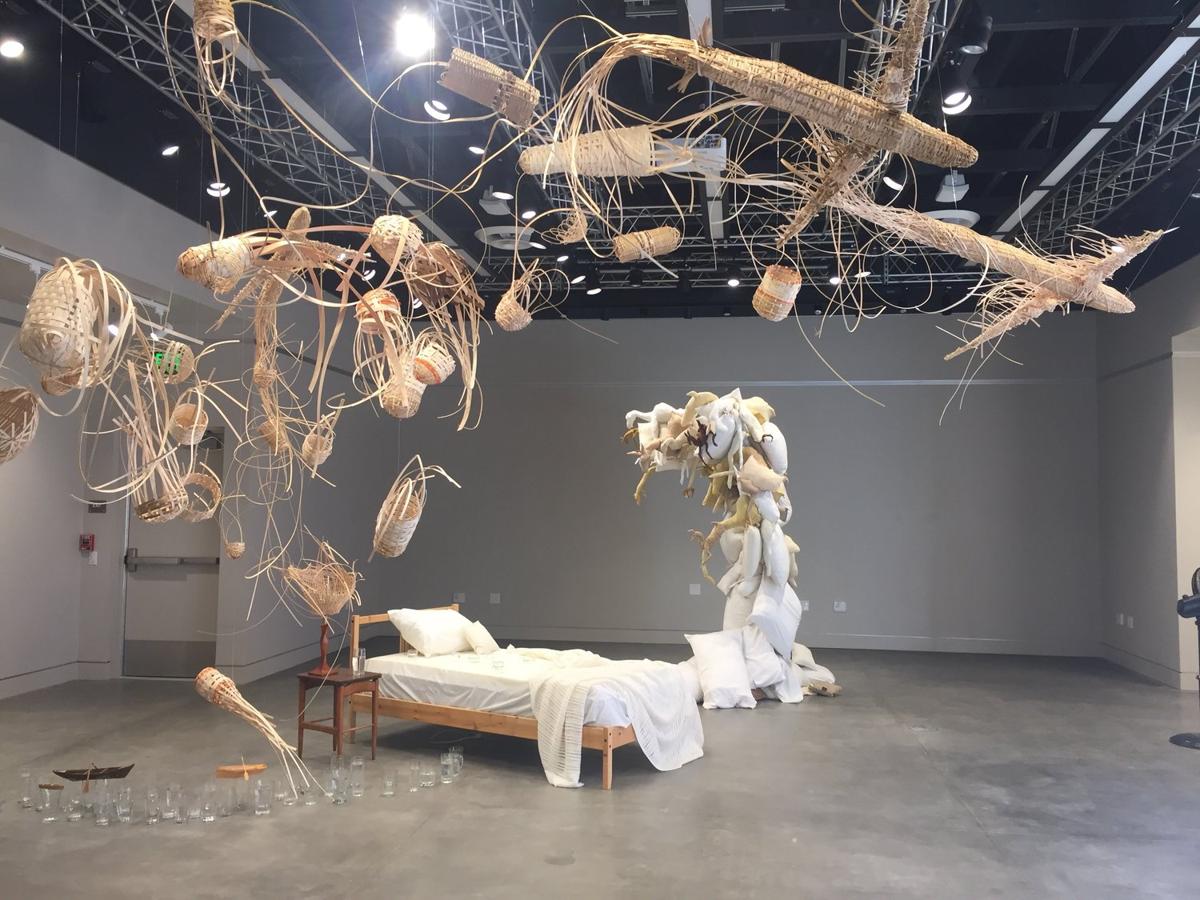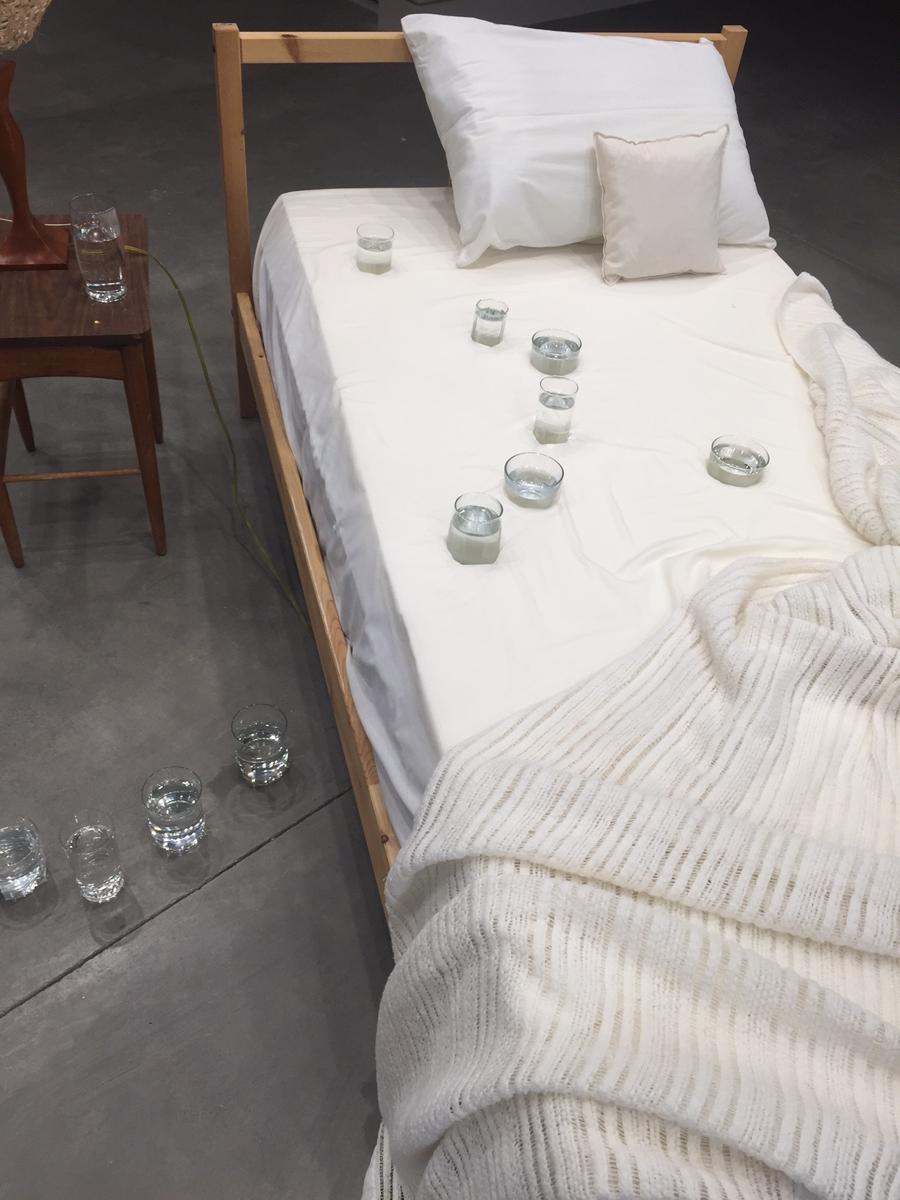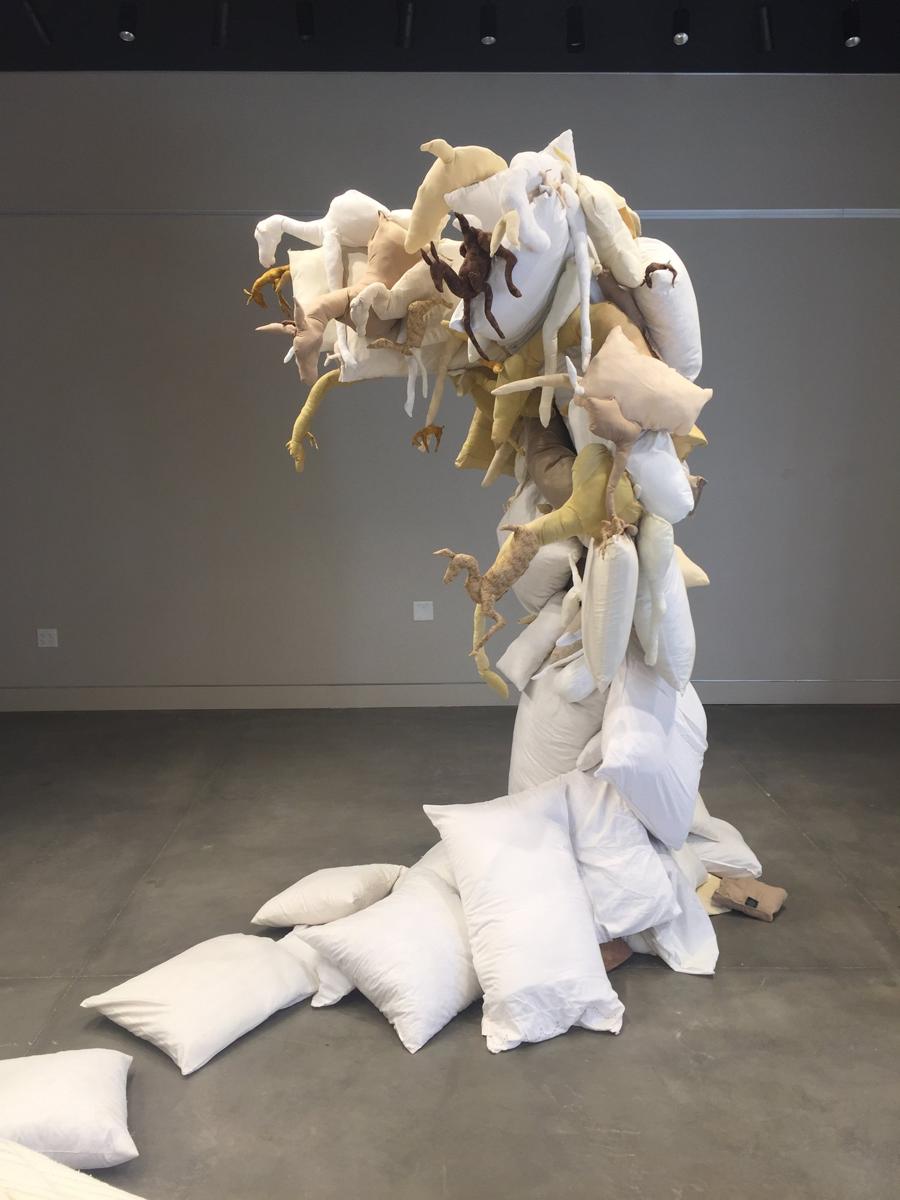March 6: The Penitential Psalms
♫ Music:
WEEK TWO INTRODUCTION
TITLE: THE PENITENTIAL PSALMS
March 6–March 12
The journey to Easter must begin with each of us reaching deep within our hearts to clearly see and fully understand and acknowledge the sins, inconsistencies, and temptations that so often weigh us down. Spending quality time in reflection and prayer as we ask God to “search our hearts” is so important. We tend to go through life on autopilot, often oblivious to the seriousness of our shortcomings and how our thoughts, feelings, and actions affect others.
Sometimes focusing on issues of social justice or pointing out our neighbor’s sins keeps us from carefully examining the sin in our own lives. Admitting failure in the Christian life can be extremely difficult because we don’t want people to think poorly of us. Musician Rich Mullins wrote, “Many times we are afraid to drop our guard because we’re afraid that people will think we are spiritually fake. Well, the truth is that we are. And so are they. And we’re all [playing this game] trying to fake each other out.” Christ’s gospel of love calls us to honestly confess and radically repent of the evil in our lives—those things that keep us from realizing our full potential in him.
The penitential psalms are found throughout the entire book, suggesting that sorrow for sin should play a central role in the human experience from youth to grave. These psalms are attributed to King David who, as we all know, committed some pretty heinous crimes. Sin has serious consequences, but as David’s life exemplified, God and his grace were greater than any of the sins King David committed. That should bring comfort to our souls.
Some pray all seven of David’s penitential psalms together on a daily or weekly basis during Lent. Others choose to pray one penitential psalm each day of the week. Author Nancy de Flon writes, “Human life is complex and varied, and these Psalms reflect this in the way each emphasizes a different context for expressing penitence. Lenten practices ought to have elements that continue in our lives beyond Lent. Perhaps these Psalms will provide material to deepen your spiritual life for every season of the year.” Although the seven penitential psalms include Psalm 102, we have chosen to use it during week six. Instead we end this week of self-examination and crying out to God with Psalm 139.
Day 5 - Sunday, March 6
Title: O LORD, DO NOT REBUKE ME
Scripture: Psalm 6
O Lord, do not rebuke me in Your anger,
Nor chasten me in Your hot displeasure.
Have mercy on me, O Lord, for I am weak;
O Lord, heal me, for my bones are troubled.
My soul also is greatly troubled;
But You, O Lord—how long?
Return, O Lord, deliver me!
Oh, save me for Your mercies’ sake!
For in death there is no remembrance of You;
In the grave who will give You thanks?
I am weary with my groaning;
All night I make my bed swim;
I drench my couch with my tears.
My eye wastes away because of grief;
It grows old because of all my enemies.
Depart from me, all you workers of iniquity;
For the Lord has heard the voice of my weeping.
The Lord has heard my supplication;
The Lord will receive my prayer.
Let all my enemies be ashamed and greatly troubled;
Let them turn back and be ashamed suddenly.
Poetry:
[“Are you Mr. William Stafford?”]
by William Stafford
“Are you Mr. William Stafford?”
“Yes, but…”
Well, it was yesterday.
Sunlight used to follow my hand.
And that’s when the strange siren-like sound
flooded
over the horizon and rushed through the streets
of our town.
That’s when sunlight came from behind
a rock and began to follow my hand.
“It’s for the best,” my mother said—”Nothing can
ever be wrong for anyone truly good.”
So later the sun settled back and the sound
faded and was gone. All along the streets every
house waited, white, blue, gray; trees
were still trying to arch as far as they could.
You can’t tell when strange things with meaning
will happen. I’m [still] here writing it down
just the way it was. “You don’t have to
prove anything,” my mother said. “Just be ready
for what God sends.” I listened and put my hand
out in the sun again. It was all easy.
Well, it was yesterday. And the sun came,
Why
It came.
O LORD, HEAL ME
Lately, the main topic of any conversation with my coworkers, friends, and family has been the topic of sleep. They wake up in the middle of the night from nightmares fueled with anxiety. Some can’t seem to fall asleep. Tossing and turning, their burdens weigh heavily on them. They look to find some solace in sleep, only for it to be less than gratifying.
Today’s passage, Psalm 6 is David’s lament to the Lord to deliver and heal his life. A man broken as a result of his sin, he cries out to the Lord as he reflects on his sins pleading for mercy and for Him to not rebuke him in His anger against sin. While lamenting, David uses the imagery of places that should bring comfort and peace like a bed and couch. This imagery is seen in the artwork for today, Sadness, Sleep and Sanctity, as it is a picture of the restlessness we feel in our everyday life. The objects circling above the bed can be the things in our lives that are unresolved, conflicts, tasks to be completed, impending deadlines, or sins undealt with. The cups of water can be seen as the trail of tears that we bring in from everyday life into bed, a place that should bring peace and comfort. Instead of comfort and peace, it’s a place where we are haunted by our lives, and evidently our sins. It’s a place that induces anxiety and restlessness, where we cry out for relief from life in bed as opposed to finding it there.
So where do we go?
“Heal me, O Lord, for my bones are dismayed.”
We bring our sins, our struggles, our pain, our lives to the Lord. As David recognizes, only the Lord can truly bring us the peace, comfort, and ultimate healing that we long to find in our own beds. He is the only one who can grant us what we need. Because of this, we do not fear the world that says otherwise, that God will not hear us and only bring more condemnation on us. We don’t need to run to the world for its comfort because God not only hears our cries, but comforts and heals us.
May we be open to His comforting presence, allowing ourselves to move towards God, not looking to the world for its fleeting comfort that we try to find in our earthly spaces. Who hears us even when we are in the darkest of places, Who hates sin, yet still loves us. May we continue to cry out to the Lord to heal us from our iniquities.
Prayer:
Lord, do not rebuke me in Your anger
Nor chasten me in your wrath
Be merciful to me, for I am weak and pining away
And my soul is greatly dismayed
So I ask you to heal me, Lord
Heal me, Lord, for my bones are dismayed
Amen
Ashley Yukihiro
Biology Lab Supervisor
Department of Biological Sciences
Biola University
For more information about the artwork, music, and poetry selected for this day, we have provided resources under the “About” tab located next to the “Devotional” tab.
About the Artwork:
Sadness, Sleep and Sanctity Installation
Nathan Huff
2017
Handmade basketry, altered furniture, sewn pillows, found water glasses
Dimensions variable depending on exhibition space
The dreamscape has long been a source of inspiration for artists and writers. As any insomniac or dreamer may tell you, the act of interpreting these intertwined experiences alternate between observing the mundane and the fantastical adventure of untangling threads of nostalgia, imagination, and memory. In this installation, artist Nathan Huff explores these impractical, disturbing, and mysterious scenarios interrupting our normal reality. While celebrating the intuitive and subconscious, the dreamscape can also offer new awareness to our present and past moments.
About the Artist:
Nathan Huff produces paintings, drawings, and sculptures that create freewheeling narratives––personal stories of suspending gravity, traversing emotional vertigo, and sorting reservoirs of memories. He earned an M.F.A. in drawing and painting from California State University Long Beach in 2010, a B.A. in art education from Azusa Pacific University, and has also studied art in Italy, France, the U.K., and Spain. Actively exhibiting on the West Coast, Huff’s installations have been featured in solo exhibitions at UCR Culver and Sweeney Galleries (Riverside), D.E.N. Contemporary (Los Angeles), Minthorne Gallery (Oregon), Sullivan Goss Gallery (Santa Barbara), Gallerie View (Tunisia), and in group exhibitions at the Santa Barbara Museum of Art, JK Gallery, Lotus Land, Wildling Museum, Westmont Ridley Tree Museum of Art, and the Angels Gate Cultural Center. His works are in the permanent collections of the Culver Museum, the Santa Barbara Museum of Art, the Hilbert Museum of California Art, and Cal State University Long Beach. In 2011 he was invited by the State Department as a guest curator with the Art in Embassies program for the US ambassador in New Zealand to curate an exhibition entitled "Encountering Place." Huff has taught classes at CSU Long Beach, L. A. Southwest College, Biola University, and Azusa Pacific University as an adjunct lecturer. Currently he teaches as an associate professor of art at Westmont College in Santa Barbara, California.
https://www.nathanhuff.com/
About the Music:
“Psalm 6 (Heal Me)” from the album The Psalms Project: Volume 1:1-10
Lyrics:
O LORD, do not rebuke me in Your anger
Nor chasten me in Your wrath
Be merciful to me, for I am weak and pining away
So heal me
Heal me
Heal me, Yahweh
Heal me
Heal me
Heal me, for my bones are dismayed
And my soul is greatly dismayed
But You, O LORD, how long?
Return, O LORD, deliver my soul
If you love me, then save me
‘Cause I cannot live for You if I waste away
Nor can I give You praise
Heal me
Heal me, Yahweh
Heal me
Heal me
Heal me, for my bones are dismayed
I am worn out from groaning
All night and I flood my bed with tears
My eyes are wasting away with grief
Because of all my enemies
Heal me
Heal me, Yahweh
Heal me
Heal me
Heal me, for my bones are dismayed (2x)
Depart, You enemies
For the LORD has heard my weeping
He will receive my prayer
Let all my enemies
Be ashamed and disappointed
Let them turn back and be suddenly defeated
[Instrumental interlude]
Yahweh (x5)
Heal me
Heal me, Yahweh
Heal me
Heal me
Heal me, for my bones are dismayed
About the Performers:
Psalms Project Band and Deryck Box
The Psalms Project is a band that seeks to set all one hundred fifty Psalms to music in their entirety, including the essential meaning of every verse. The Psalms Project is led by singer/songwriter/producer Shane Heilman, who has collaborated with over seventy musicians thus far, including Grammy nominees Phil Keaggy, Jeff Deyo, and Dove Award nominee Jaye Thomas, to produce the Psalms Project’s first four albums. The project is also a nonprofit organization whose mission is to raise money and awareness for world missions to the poorest and most hopeless places on earth. All of the profits generated by the music, concerts, and merchandise is donated to Christian mission efforts focused on sharing the gospel of forgiveness of sins, healing, and deliverance through faith in Jesus Christ.
https://www.thepsalmsproject.com/whoweare/
Deryck Box is a musician and singer. He sang the lead vocals for today’s music, “Psalm 6.” Raised in Africa and now living in the United States, Box uses the depth of his cultural influences and experience to minister. His percussive acoustic guitar and power vocals give him a style all his own. His love of worship propels him into deeper places of music that have attracted and moved both the believer and nonbeliever alike. Deryck says of his music, “Worship is an expression of who we are. Music is the gift God has given me to share His heart with others.”
https://www.thepsalmsproject.com/whoweare/
About the Composer:
Shane Heilman is the worship leader, vocalist, songwriter, and music producer for the Psalms Project. Before writing and producing Volume 1: Psalms 1-10 in 2012, he studied music performance at Belmont University in Nashville, Tennessee, and wrote and recorded five independent albums. He has performed all over the US with various artists as a guitarist, vocalist, and worship leader.
https://www.thepsalmsproject.com/whoweare/
About the Poet:
William Stafford (1914–1993) was an American poet and pacifist. He was appointed the twentieth Consultant in Poetry to the Library of Congress in 1970. Stafford was forty-eight years old when his first major collection of poetry was published: Traveling Through the Dark, which won the 1963 National Book Award for Poetry. Stafford had a quiet daily ritual of writing which focused on the ordinary and sometimes mundane. His gentle quotidian style has been compared to that of poet Robert Frost. Author Paul Merchant writes, "His poems are accessible, sometimes deceptively so, with a conversational manner that is close to everyday speech. Among predecessors whom he most admired are William Wordsworth, Thomas Hardy, Walt Whitman, and Emily Dickinson." His poems are typically short, focusing on the earthy, accessible details appropriate to a specific locality. Despite his late start in writing, he was a frequent contributor to magazines and anthologies and eventually published fifty-seven volumes of poetry. Poet and novelist James Dickey called Stafford one of those poets "who pour out rivers of ink, all on good poems." Stafford kept a daily journal for fifty years, and composed nearly twenty-two thousand poems, of which roughly three thousand were published.
https://www.poetryfoundation.org/poets/william-e-stafford
https://en.wikipedia.org/wiki/William_Stafford_(poet)
About the Devotion Author:
Ashley Yukihiro
Biology Lab Supervisor
Department of Biological Sciences
Biola University
Ashley Yukihiro is an alumna of Biola University (2019). She is currently juggling her job as biology lab supervisor while studying in the philosophy program at Talbot School of Theology. She deeply desires to care for people well while pursuing the truth.


